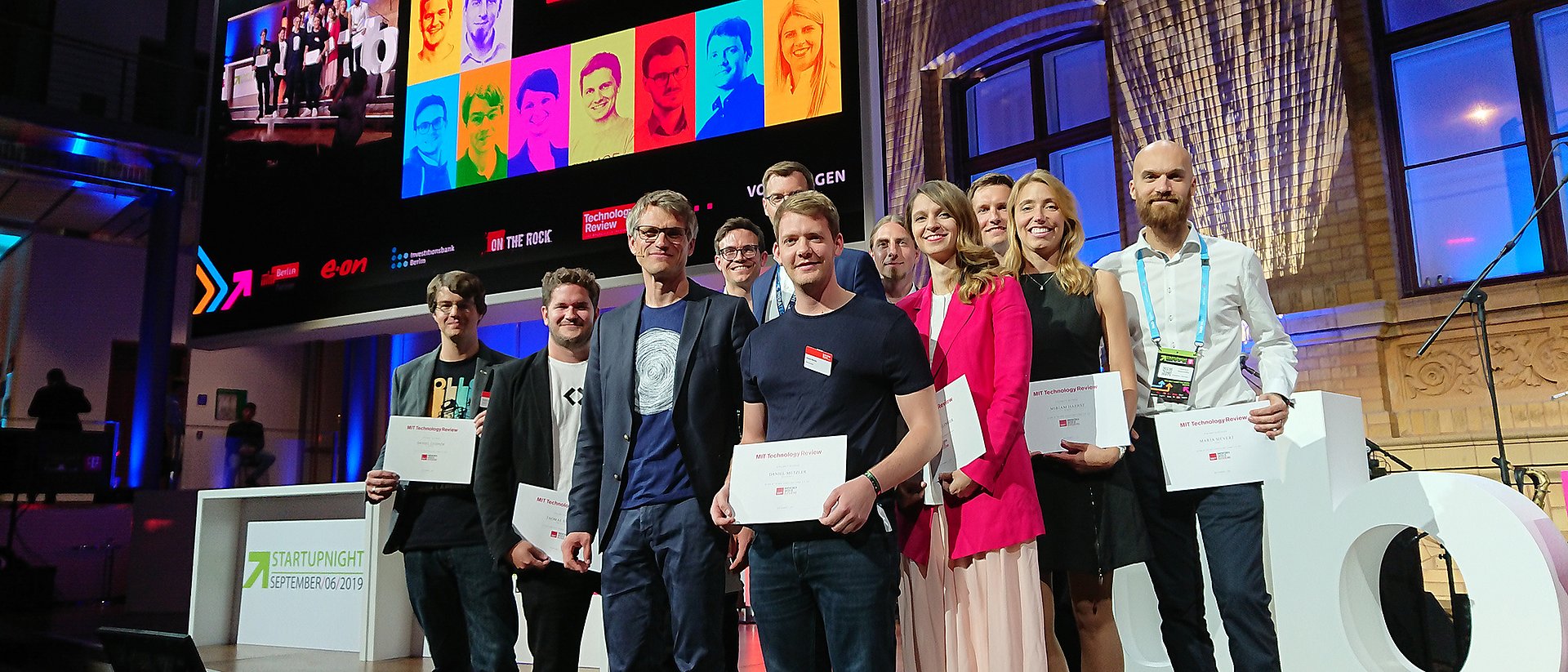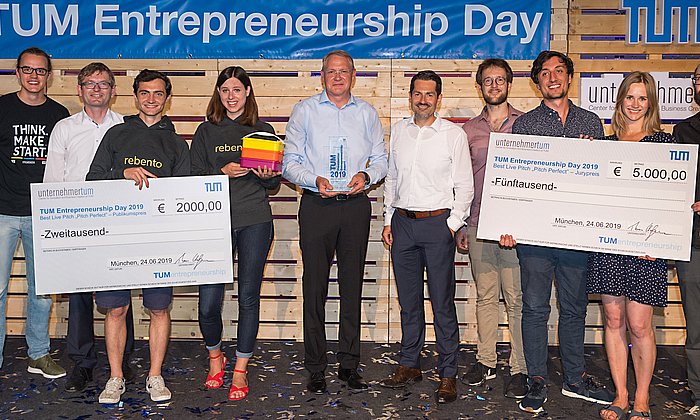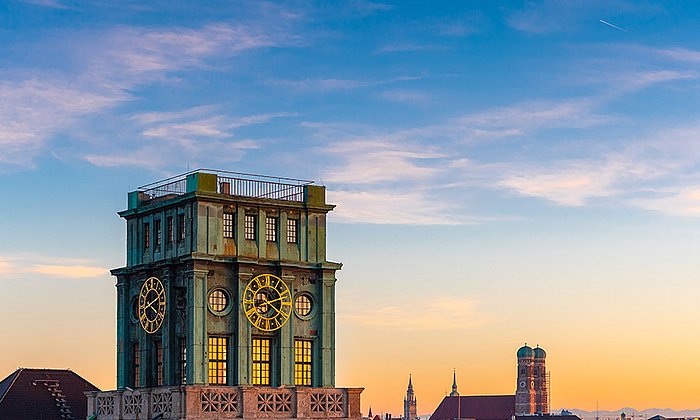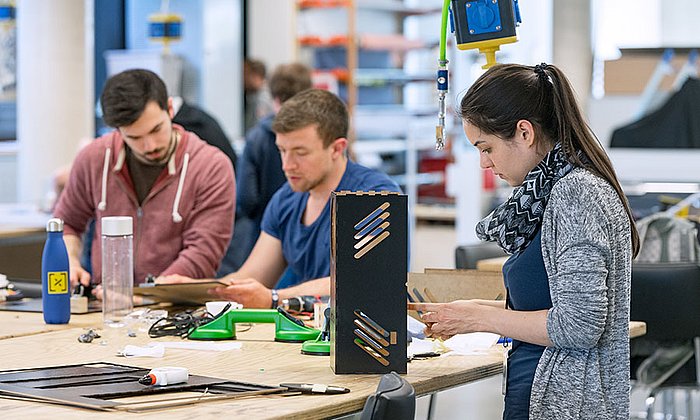TUM strongly represented among the best "Innovators under 35".
Honors for young start-up founders

The competition for young talents was launched in the US by the Technology Review of the Massachusetts Institute of Technology (MIT). The award is regarded as one of the most prestigious honors for young start-up founders and has been presented by the German edition of the Technology Review since 2013. Last Friday ten innovators were honored, four of whom studied at TUM and created their start-ups with the support of TUM and UnternehmerTUM:
Michael Baumann (TWAICE)
Michael Baumann (30) studied Mechatronics and Information Technologies at TUM and recently earned his doctorate at the TUM Chair of Automotive Technology. Research visits took him to the University of California Berkeley and TUMCREATE in Singapore, a research platform for the improvement of public transportation operated jointly by TUM and Nanyang Technological University (NTU). Baumann was supported by TUM start-up consultants and took part in the incubator program UnternehmerTUM XPRENEURS and the Climate-KIC accelerator before joining forces with Dr. Stephan Rohr to found TWAICE. The start-up has developed software that uses computer simulations referred to as "Digital Twins" to analyze the condition and capacity of lithium ion batteries.
Dr. Miriam Haerst (Kumovis)
Miriam Haerst (32) studied Mechanical Engineering at TUM and earned her doctorate at the Chair of Medical Materials and Implants. Together with her colleagues Alexander Henhammer, Stefan Fischer, Stefan Leonhardt and Sebastian Pammer she began developing a PEEK 3D printer at the Chair in 2015. "PEEK" (Polyether ether ketone) plastics are an economical high-performance alternative to metal in implant design. The researchers founded Kumovis and brought their product to market readiness with the support of TUM start-up consultants, the entrepreneurship stipendium Manage&More and the incubator program XPRENEURS at the UnternehmerTUM Center for Innovation and Business Creation as well as the EXIST research transfer program.
Daniel Metzler (Isar Aerospace)
Daniel Metzler (27) was still studying Aviation and Astronautics at TUM when he and his fellow students Markus Brandl and Josef Fleischmann founded Isar Aerospace. The start-up is a product of the student space flight working group WARR and develops drives for small launch vehicles. The drives employ a combination of hydrocarbon mixtures such as kerosene and liquid oxygen. The start-up thus makes it possible to eliminate the use of the conventional but toxic rocket fuel hydrazine. The founders took part in TUM start-up consulting and benefited from financing by UnternehmerTUM Venture Capital Partners (UVC).
Maria Sievert (Inveox)
Maria Sievert (29) studied Civil Engineering and Business Engineering at TUM. In 2017, she founded Inveox together with Dominik Sievert. The start-up develops systems for digitalization, automation and networking of pathology laboratories. The two met in the Manage&More coaching program and assembled the first prototypes for containers and an automation platform in the MakerSpace at the TUM Garching campus. They received additional support from TUM start-up consultants and an EXIST grant. This year the company became a member of the World Economic Forum (WEF) and has over 80 employees from 20 countries.
- Start-up support at TUM
- High-tech workshop MakerSpace
According to the current German "Deutscher Startup Monitor", TUM produces more start-up founders than any other German university. Every year approximately 70 companies are spun off at TUM. The excellent support is also confirmed by the "start-up radar" of the German business community's innovation agency Stifterverband for German Science, which places TUM number 1 among major universities.
Technical University of Munich
Corporate Communications Center
- Andreas Schmidt
- a.schmidt@tum.de
- presse@tum.de
- Teamwebsite
![Michael Baumann [Translate to en:] Michael Baumann](/fileadmin/_processed_/b/6/csm_Michael_Baumann_88f3e8cb76.jpg)
![[Translate to en:] Miriam Haerst Miriam Haerst](/fileadmin/_processed_/e/5/csm_KUMOVIS_MiriamHaerst_CEO_86b6c4be13.jpg)
![[Translate to en:] Daniel Metzler Daniel Metzler](/fileadmin/_processed_/f/3/csm_oberstufe_58de9f73f9.jpg)
![[Translate to en:] Maria Sievert Maria Sievert](/fileadmin/_processed_/7/7/csm_Inveox_01_FF_AE_-8401_bearb_3_kopie_1c6be6af48.jpg)


